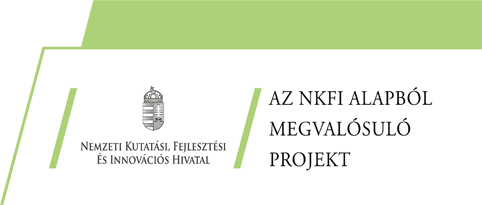
The Eötvös Loránd Research Network (ELKH) becomes the creator of national and international success, the values of Hungarian and universal science with the unity of research excellence, authentic science and commitment to society. As the institution of Hungary’s only network of main research institutes, our main goal is to play a role in the service of the public good and in laying the foundations for the future by building on Hungarian research traditions with significant exploratory research and valuable scientific results.
According to its founding document, the Natural Science Research Center (NSRC) conducts multidisciplinary scientific research in the fields of enzymology, organic chemistry, cognitive neuroscience and psychology, and materials and environmental chemistry.
The disciplines of the research centre’s four institutes, the Institute of Materials and Environmental Chemistry,the Institute of Enzymology,the Institute of Cognitive Neuroscience and Psychology, and the Institute of Organic Chemistry , can be placed in the human, material, and environmental dimensions. The interaction of these systems defines the broader disciplines that are related to the scientific mission of TTK.
Taking into account the international trends of natural science research, social expectations, the direction and results of the current research in the institutes of TTK, as well as the research carried out in the network of research institutes of ELKH, TTK implements its scientific mission in health sciences and materials and environmental sciences. A common feature of these focus areas is that they can only be cultivated with a complex, multidisciplinary approach. This allows TTK to effectively leverage the benefits of the organization and research infrastructure in its new building.
The focus areas of health science research and the multidisciplinary environment provided by the RTD create ideal conditions for research in the institutes of the research center.
- biological (biophysics, biochemistry, bioinformatics, enzymology, genetics, molecular biology, cell biology, cellular and molecular interpretation of physiological and pathophysiological processes)
- chemical (development of heterocyclic compounds, carbohydrates, polymers and new synthetic methods),
- pharmacological and pharmacovigilance (study of the molecular basis of drug effects, experimental developments to create new, effective and safe drugs)
- and cognitive neuroscience and psychology (social, comparative cultural, cognitive, and developmental psychology, and psychophysiology)
for research.
In the field of materials and environmental science research, TTK
- material and environmental chemistry (investigation of the production and properties of functional and structural materials, micro- and nanostructured surface layers and solid / liquid interfaces, as well as development of processes and methods to reduce environmental impact),
- materials science (creation of functional materials and nanostructures and study of their physical, chemical and biological properties)
focus. Complex functional and structural materials, nanometer-sized structures, and integrated micro- and nanosystems and microtechnological devices built from them are already widely used, and these possibilities are further expanded by basic and applied research in RTD. The sensory and bionic applications developed at the research center are an important link to the focus areas of health science research. Research into the development of procedures to reduce the burden on the environment is of paramount importance, which is playing an increasingly important role in sustainable economic processes due to the tightening of domestic and European regulations.
The Natural Science Research Center fulfills its mission in the European Union, including Hungary, where it intends to perform its scientific, technical, technological, educational, educational and social tasks as a publicly funded professional research center.
Read more: https://www.ttk.hu/
 Skip to main content
Skip to main content
